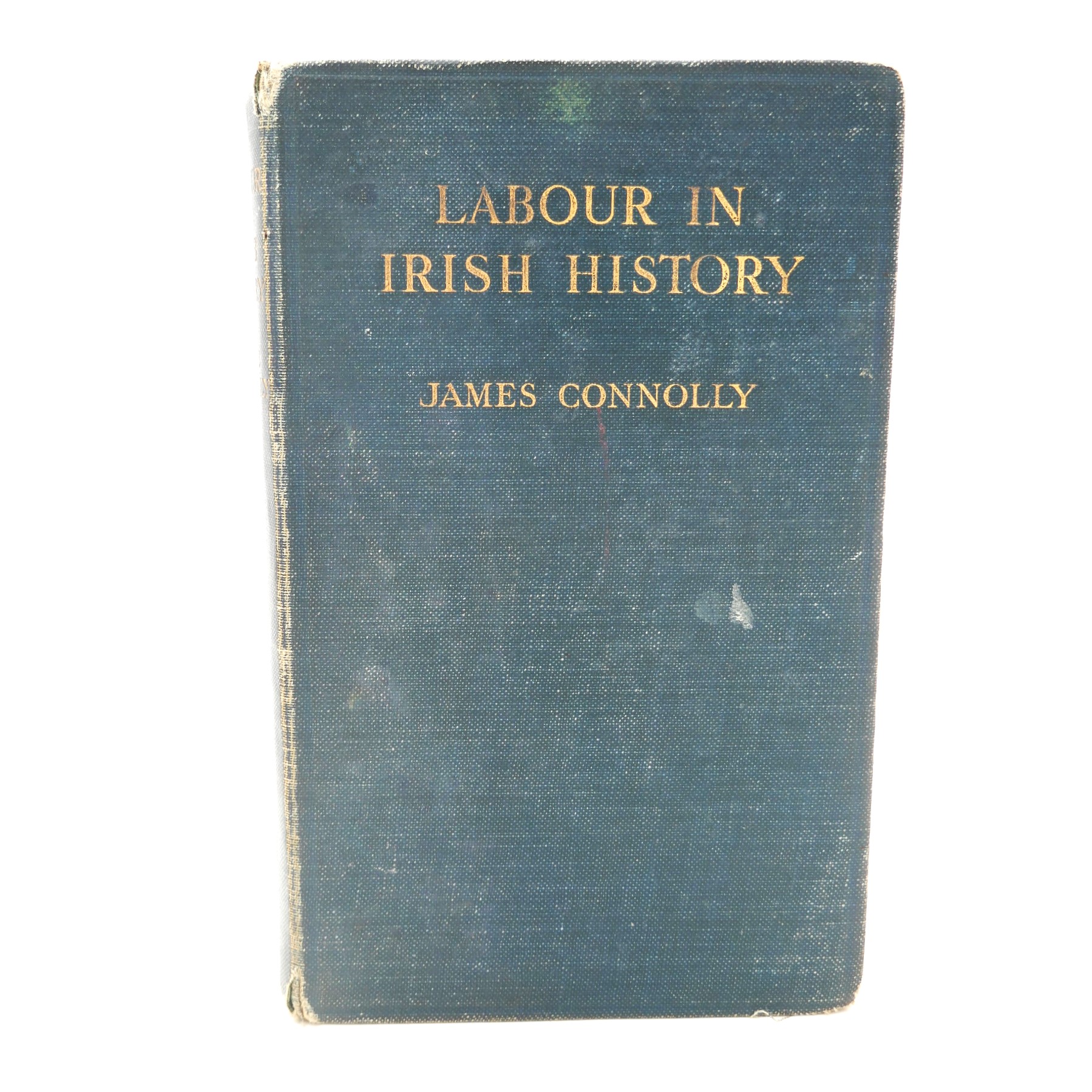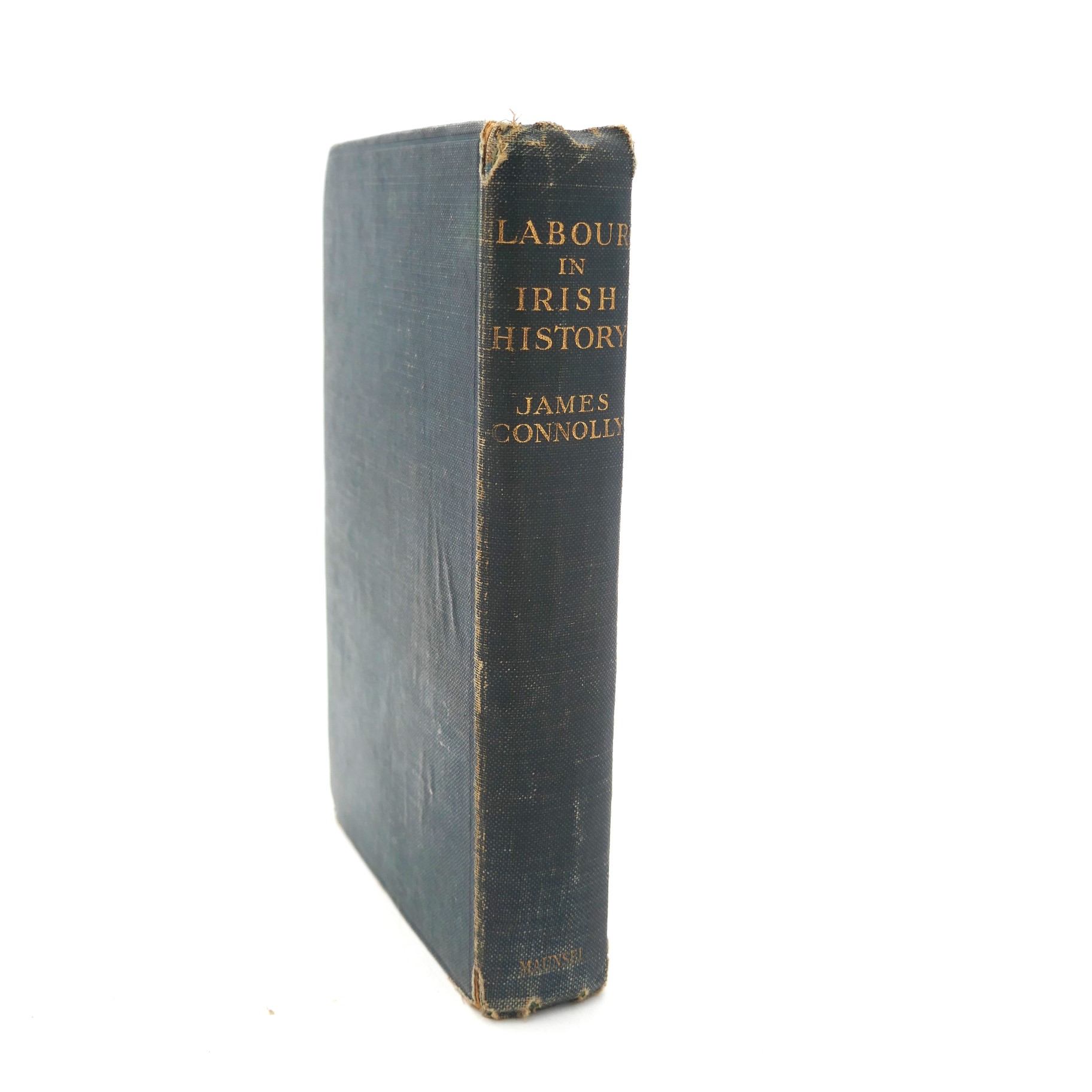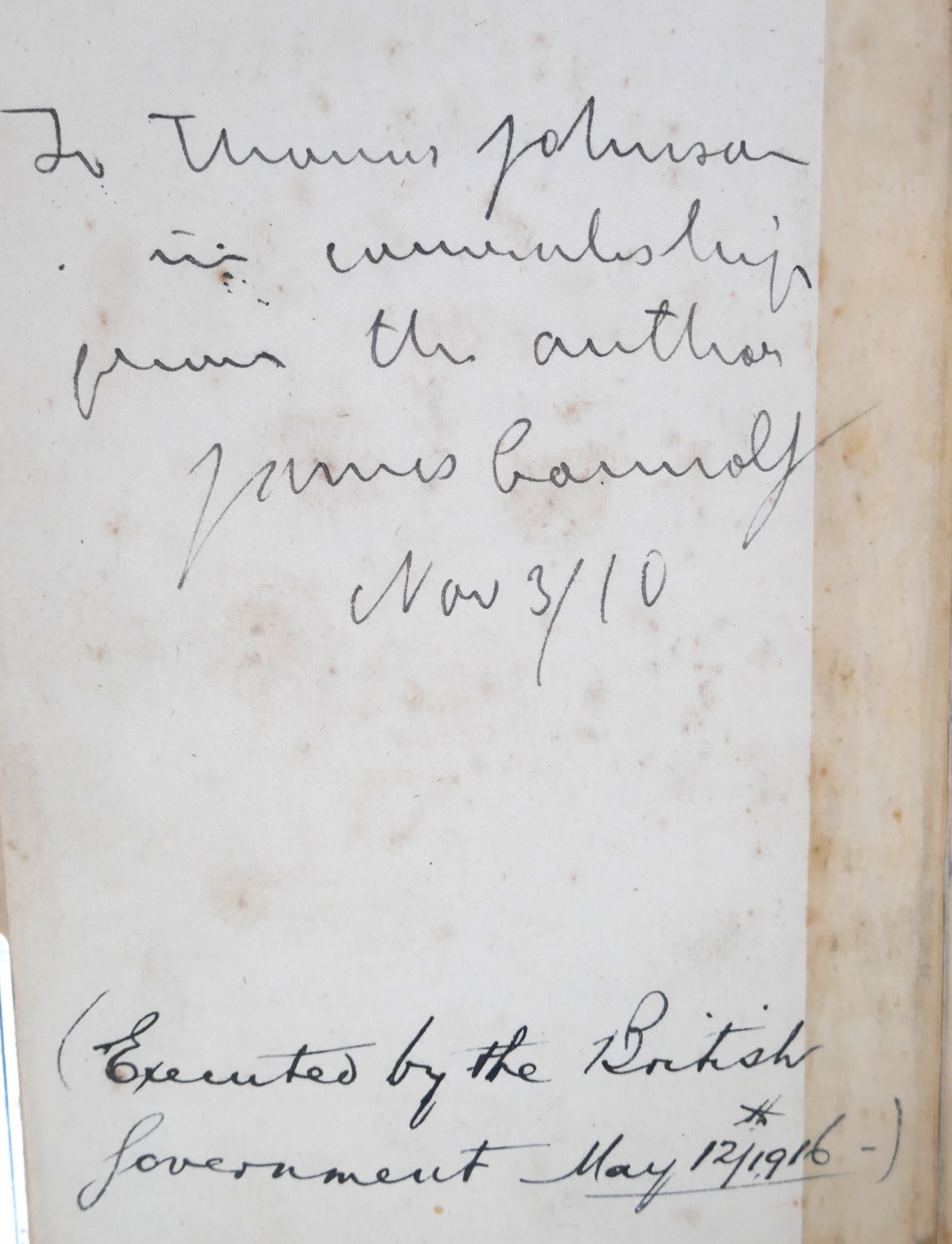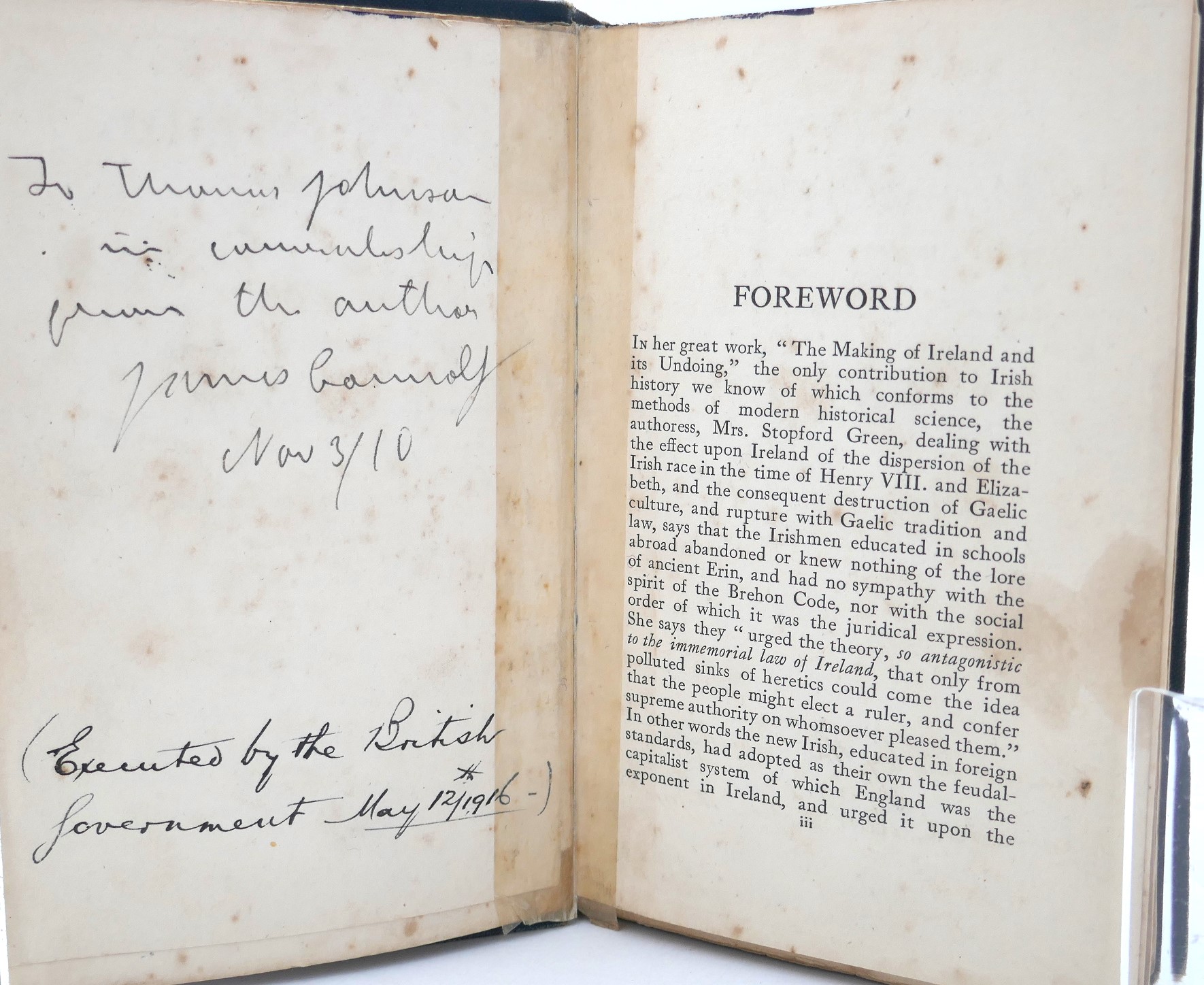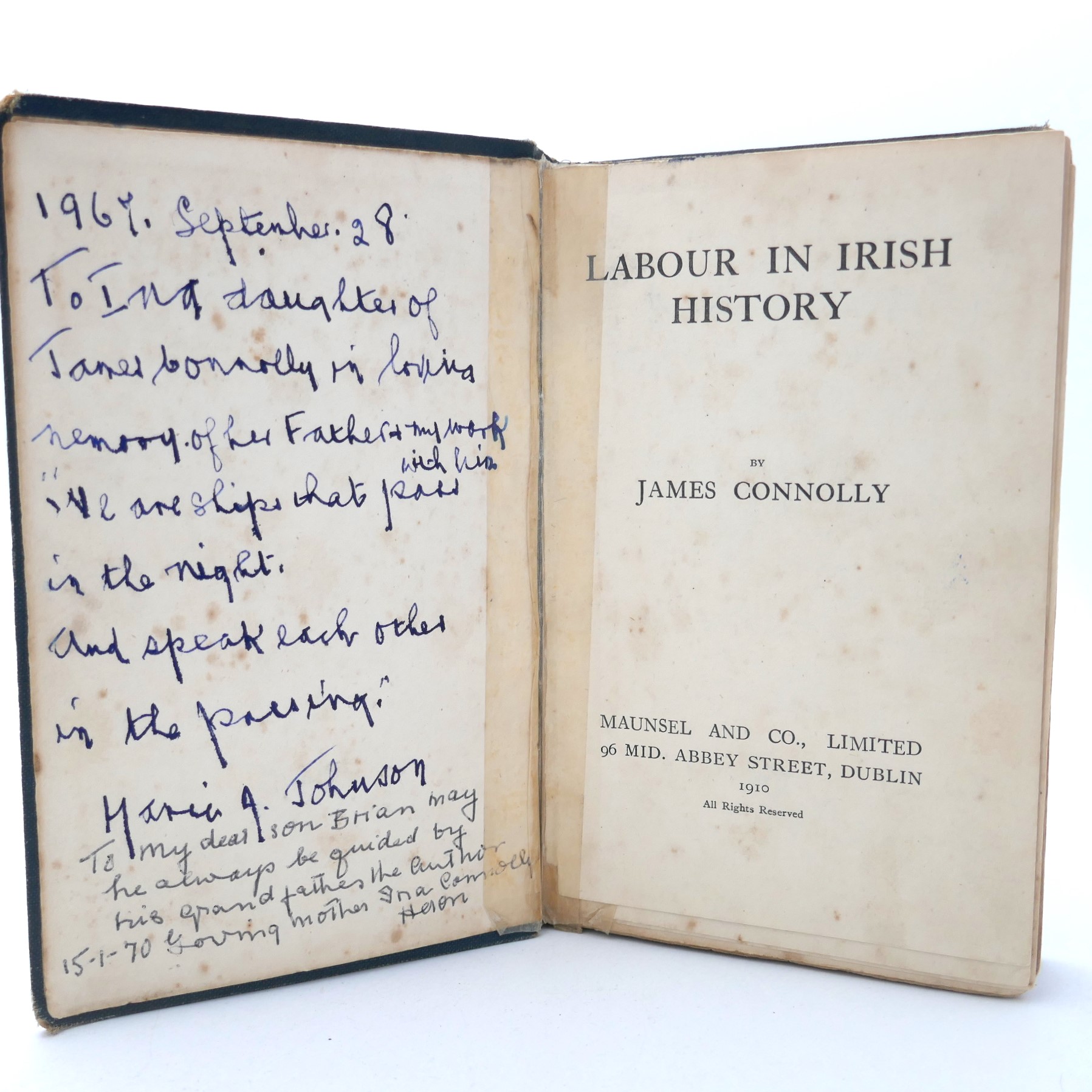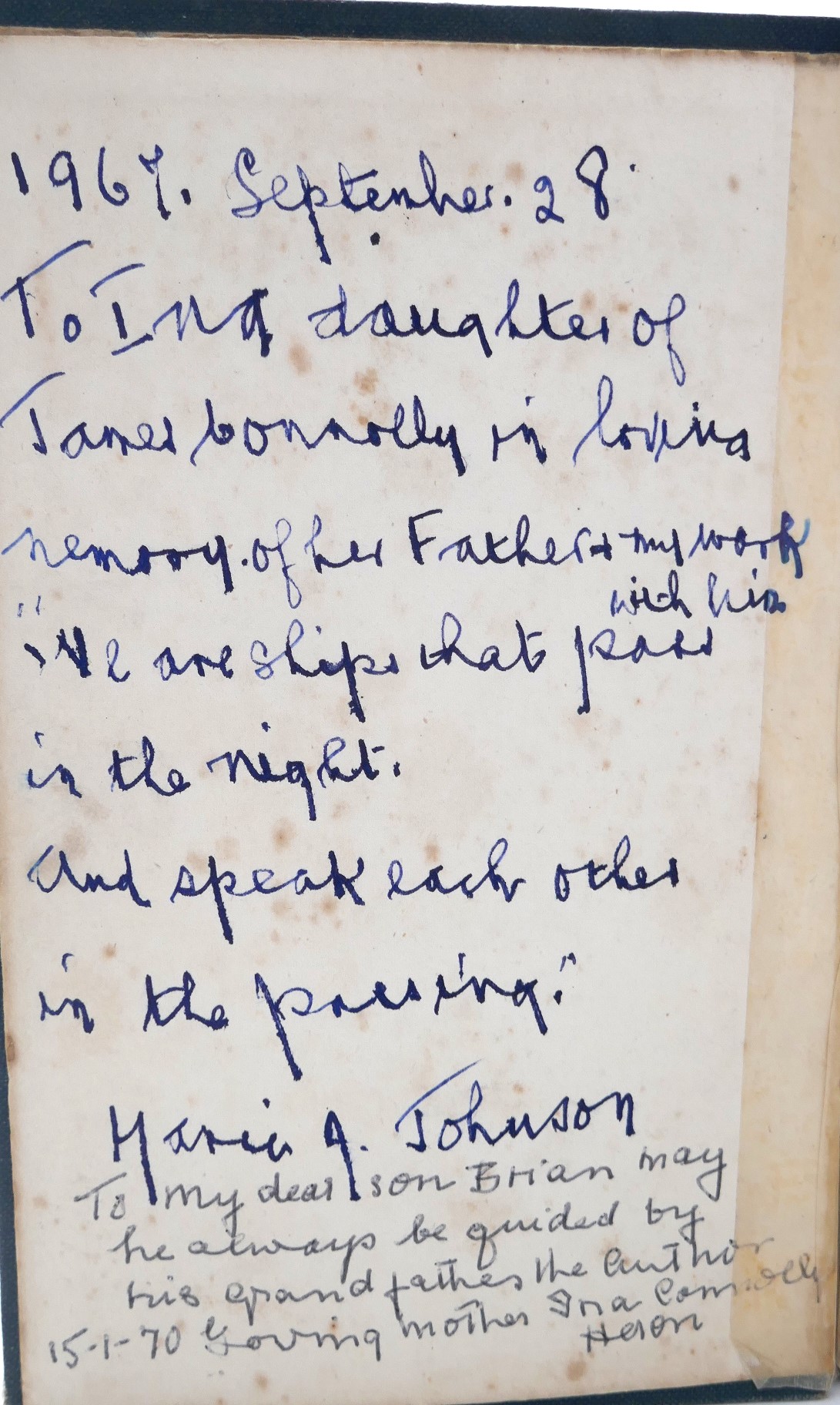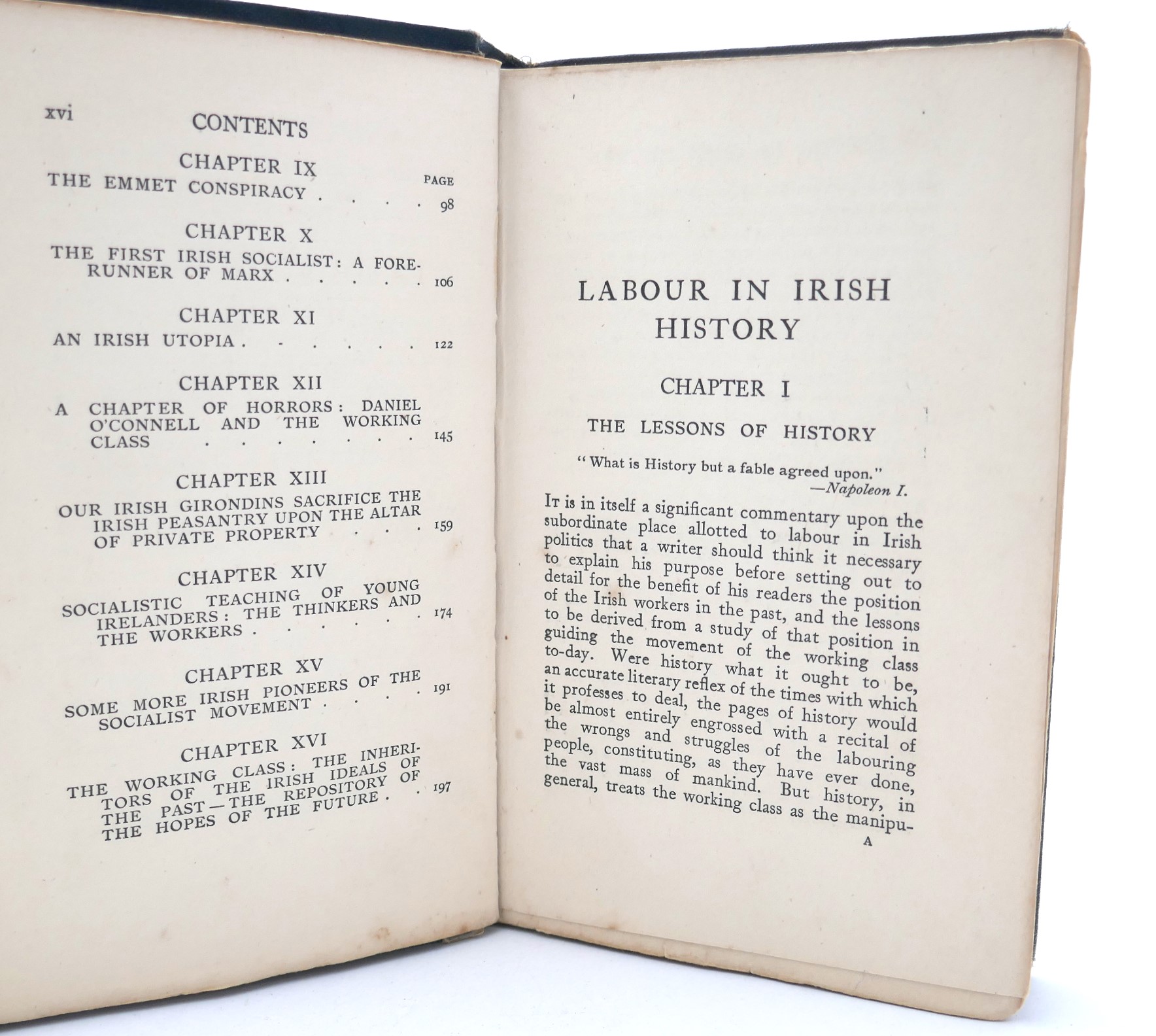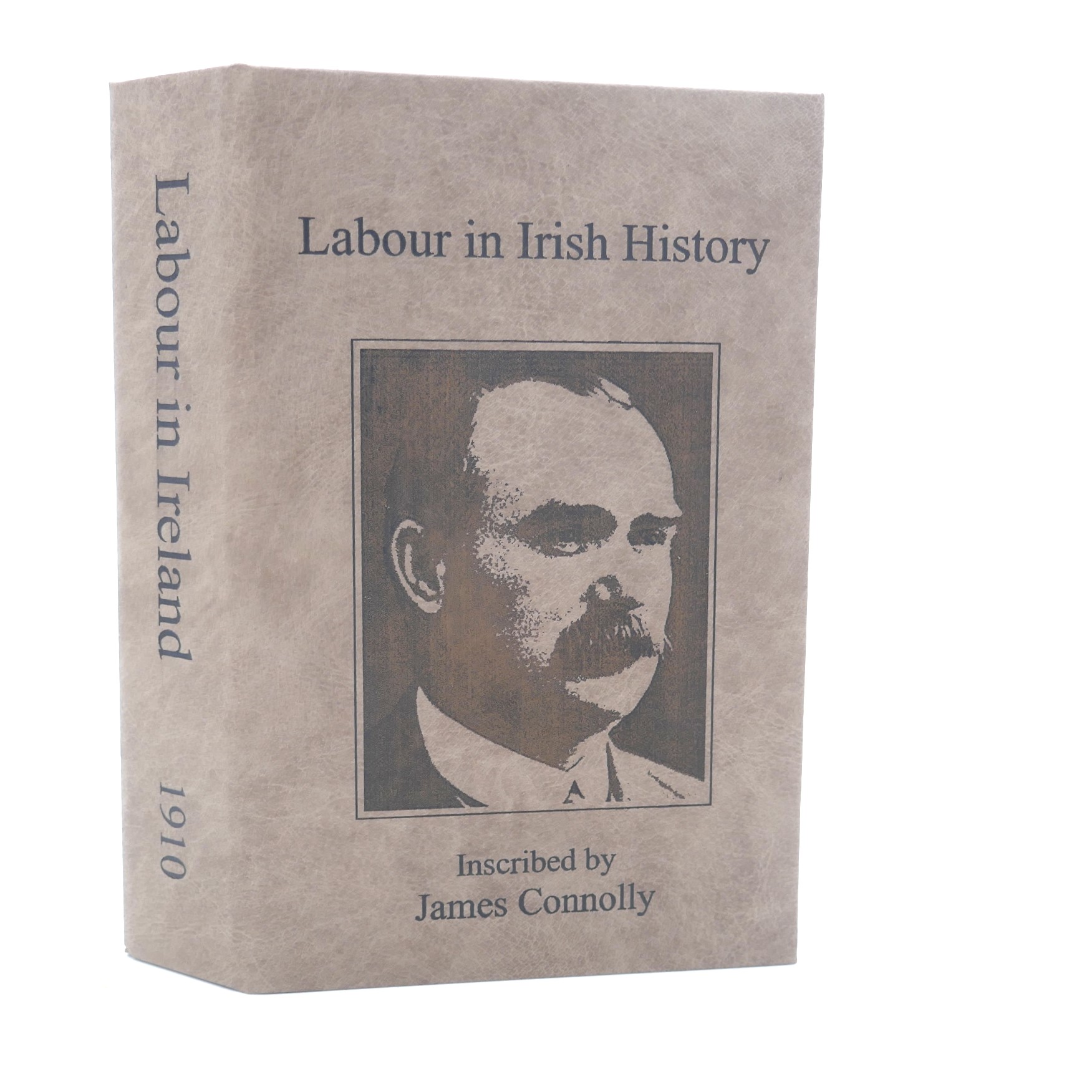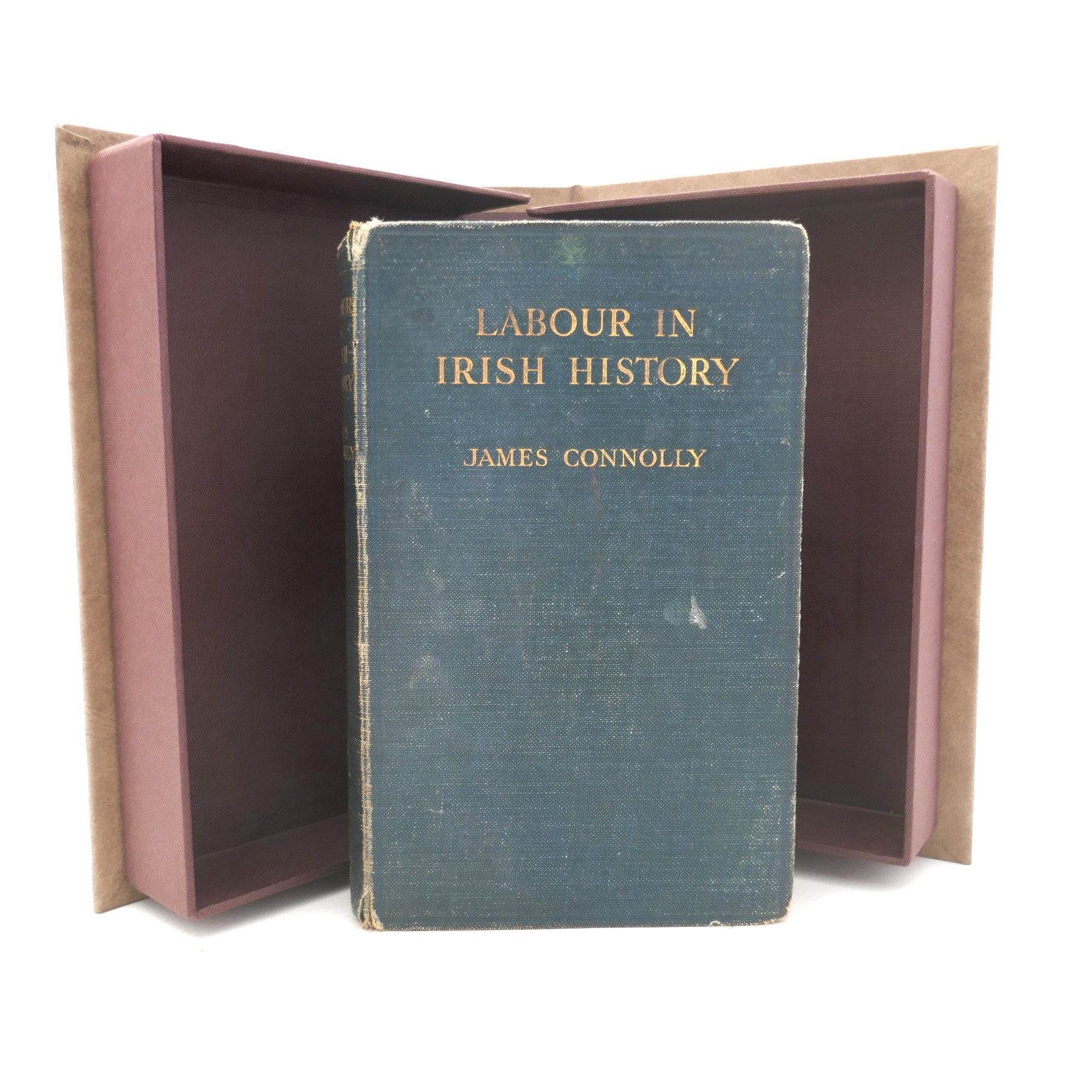Labour in Irish History. Inscribed by James Connolly (1910)
Book ID: 66284
Price: €11,500.00
Labour in Irish History. Dublin: Maunsell & Co., 1910. First Edition. Pp xiv, 216. Original cloth boards, title lettered in gilt to upper cover & spine. Original blue cloth gilt, covers shook and bumped, archival tape repair to front free endpaper and title page, and rear of title page, otherwise good.
Inscribed by the Author: ‘To Thomas Johnson in comradeship from the author, James Connolly, Nov 3/10’
Further inscriptions: 1967- September-28. ‘To Ina, daughter of James Connolly in loving memory of her Father and my work with him. We are ships that pass in the night and speak each other in the passing’, Marie J. Johnson’ and in another hand ‘To my dear son Brian. May he always be guided by his grandfather the author, loving mother Ina Connolly Heron’, 15-1-70.
Born in Liverpool, Tom Johnson worked on the docks for an Irish fish merchant, spending much of his time in Dunmore East and Kinsale, where he met his future wife Marie Annie Tregay (they married in Liverpool in 1898). They moved to Belfast, where both of them became involved in trade unionism and labour politics. Her husband went on to become the leader of the Irish Labour Party, a TD and a Senator. In 1907 Johnson helped James Larkin organise a strike in Belfast port. At various times he was the president, treasurer and secretary of the Irish Trades Union Congress. Marie Johnson was an enthusiastic supporter of the Women’s Social and Political Union. She represented Ireland during the 4th congress of the Women’s International League for Peace and Freedom in Washington in 1924, where she was able to present to Congress that Ireland had universal suffrage. Thomas Johnson was elected a TD for Dublin County to the Third Dáil at the 1922 general election and remained leader of the Labour Party until 1927. As such, he was Leader of the Opposition in the Dáil of the Irish Free State, as the anti-treaty faction of Sinn Féin refused to recognise the Dáil as constituted.
James Connolly was executed by a British firing squad in Kilmainham jail because of his leadership role in the Easter Rising of 1916. Connolly’s achievements were as a labour leader. In Belfast he led a successful docker’s strike. In Dublin he worked with Jim Larkin in the Irish Transport and General Worker’s Union, organising a series of strikes which culminated in the unsuccessful 1913 Dublin Lock-out. He set up the Irish Citizen Army to defend the workers. He is best remembered for his part in the 1916 Rising and his execution by firing squad, although injured and unable to stand, in Kilmainham Jail.
Out of stock
